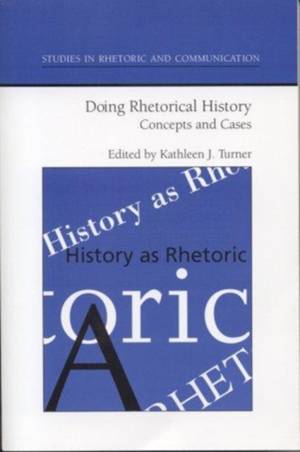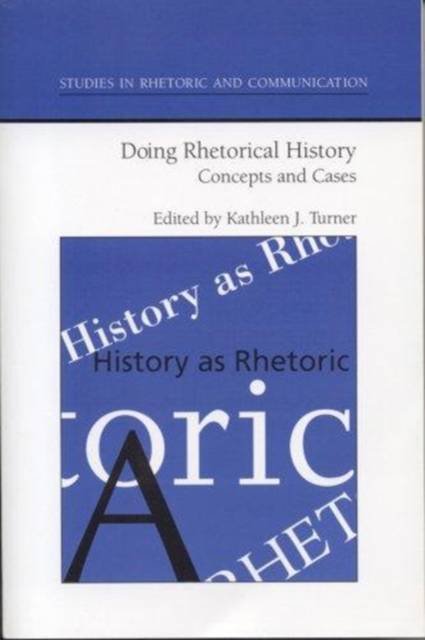
- Retrait gratuit dans votre magasin Club
- 7.000.000 titres dans notre catalogue
- Payer en toute sécurité
- Toujours un magasin près de chez vous
- Retrait gratuit dans votre magasin Club
- 7.000.000 titres dans notre catalogue
- Payer en toute sécurité
- Toujours un magasin près de chez vous
Doing Rhetorical History
Concepts and Cases
Description
and as a perspective, offers insights that are central to the study of
communication and unavailable through other approaches.
The current field of communication derives from the historical study
of rhetoric. Over the last few decades, however, as the trend toward theoretical
conceptions has driven analysis and as a host of "isms" has defined
criticism, communication studies have moved away from a predominantly historical
perspective.
Yet many scholars in the field continue to find benefits in rhetorical
history. In the thirteen essays gathered here, eminent scholars address
the ongoing dialogue over the regrounding of rhetorical study and the relationship
between theory and history as well as history and criticism in the field.
Some examine the conceptual issues involved in the juncture of rhetoric
and history; others offer case studies, often based on research with primary
documents, to illustrate the process and promise of rhetorical history.
Collectively, their work tests theory and complements criticism while standing
as a distinct and valid approach in and of itself.
The conceptualizations and methodologies of rhetorical history will
increase in significance during the burgeoning "Communication Age"
as we seek to cope with the present and prepare for the future by better
understanding the past. This volume serves as an excellent overview of
a recently neglected methodological approach and acts as the first step
in ending that neglect.
Spécifications
Parties prenantes
- Editeur:
Contenu
- Nombre de pages :
- 304
- Langue:
- Anglais
- Collection :
Caractéristiques
- EAN:
- 9780817350482
- Date de parution :
- 01-01-03
- Format:
- Livre broché
- Format numérique:
- Trade paperback (VS)
- Dimensions :
- 149 mm x 235 mm
- Poids :
- 508 g






